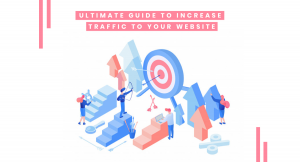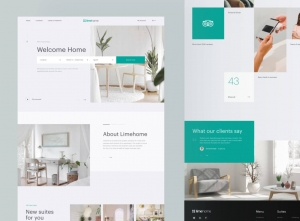Thinking about getting a website in 2025? Whether you're launching a business, revamping your brand, or finally bringing that passion project to life, understanding the costs is key. Websites can range from budget-friendly DIY options to high-end custom builds. The cost depends on design, functionality, and ongoing maintenance. Businesses and individuals must choose between different development options, from using website builders to hiring a website designer or an agency. Understanding the pricing structure helps in making an informed decision. This guide explains the cost of different types of websites, common pricing models, and additional expenses.
Website Cost by Type
Simple Website ($500 - $5,000)
A simple website includes basic pages such as Home, About, Services, and Contact. It may use a pre-designed template and require minimal customization. Small businesses and freelancers often choose this option.
Small Business Website ($2,000 - $10,000)
A small business website includes custom design, responsive layout, and features such as contact forms, appointment booking, or a blog. It may require professional design and development services.
eCommerce Website ($5,000 - $50,000+)
An eCommerce website allows businesses to sell products online. Costs depend on the number of products, payment options, and shipping integrations. Shopify, WooCommerce, and Magento are common platforms for these sites.
Custom Web Application ($10,000 - $100,000+)
A custom web application includes unique features such as user accounts, dashboards, or advanced integrations. These websites require extensive development, testing, and ongoing maintenance.
Pricing Models
DIY Website Builders ($10 - $50/month)
Platforms like Wix, Squarespace, and Shopify offer website builders with monthly subscription fees. These services include hosting, templates, and support.
Freelancer ($500 - $10,000)
Freelancers charge based on experience and project complexity. They may use pre-built themes or develop custom solutions. Hourly rates range from $25 to $150.
Web Design Agency ($3,000 - $100,000+)
Agencies provide full-service website development, including design, coding, SEO, and maintenance. Prices depend on project size and required features.
Additional Costs
Domain Name ($10 - $50/year)
A domain name is the website's address (e.g., yourbusiness.com). Costs vary based on the domain extension (.com, .net, .io) and registrar.
Web Hosting ($50 - $500/year)
Hosting is needed for website storage and access. Shared hosting is the cheapest, while dedicated and cloud hosting cost more but offer better performance.
SSL Certificate ($0 - $300/year)
An SSL certificate secures the website and protects user data. Many hosting providers include a free SSL, but premium options provide additional security features.
Plugins and Extensions ($50 - $500/year)
WordPress and other CMS platforms require plugins for added functionality. Some plugins are free, while others have annual fees.
Ongoing Maintenance ($500 - $5,000/year)
Websites need regular updates, security checks, and backups. Businesses may hire a professional for monthly maintenance.
Factors That Affect Cost
The cost of a website depends on several key factors. A more complex design with custom graphics, animations, and branding will require more time and expertise, increasing the price. Additional features such as memberships, online payments, and third-party integrations also add to the cost. High-quality content, including text, images, and videos, can require professional services, making it another expense to consider. Search engine optimization (SEO) is crucial for visibility and can range from basic keyword implementation to ongoing monthly services. The more advanced and unique your website's features, the higher the overall cost will be.
Conclusion
A website is an investment, and its cost depends on your needs and goals. If you're a small business owner, a freelancer, or someone looking to start an online store, your budget will shape your choices. A basic website can be affordable, but if you need advanced features, custom design, or ongoing maintenance, expect to pay more.
Before jumping in, think about what matters most to you. Are you looking for a sleek portfolio, a powerful eCommerce store, or a custom-built application? Understanding the costs upfront helps you avoid surprises and plan your budget wisely.
Whether you go with a website builder, hire a freelancer, or work with an agency, the right choice depends on your business needs and financial situation. While website trends will continue to change, one thing is clear: having a strong online presence remains essential. A well-built website is more than just an expense—it's a tool that helps businesses grow and connect with their audience.






